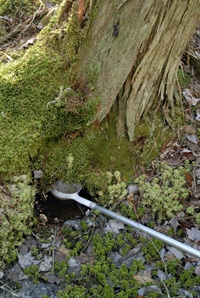Evidence based control of mosquito vectors, in an insecticide resistance landscape, 12/03/2024, On Demand More info »
Evidence based control of mosquito vectors, in an insecticide resistance landscape
- Average Rating:
- 1
- Categories:
- Live Webinar
- Faculty:
- John Vontas, PhD
- Course Levels:
- All Levels
- Duration:
- 1 Hour
- License:
- Never Expires.
Description
Abstract: Prevention of vectors of human diseases, including invasive species which are expanding their worldwide distribution due to environmental/climate changes, largely relies on the use of insecticides. However, both the limited availability of insecticides and the phenomenon of insecticide resistance represent a major threat for the sustainability of vector control interventions. Passive transportation of invasive disease vectors, including individuals carrying resistance mechanisms, further exacerbates the problem.
Both classical and molecular tools have been developed and used for insecticide resistance monitoring. Despite major advances in the molecular elucidation of resistance mechanisms and the development of molecular diagnostic tools, their impact on disease control programs has been limited. In most cases diagnostic tools provide a retrospective examination of changes imposed by insecticides rather than a prospective analysis to guide vector control strategies.
The uncertainty of the predictive value of markers, the assay robustness and the common misconceptions in resistance diagnosis terminology are continuing challenges in monitoring vector resistance. The current deployment of new insecticidal active ingredients, as well as alternative New Paradigms within an insecticide landscape, should necessitate the development of modern ways for management of the resistance data, in line with evidence based choice of chemicals in agriculture and medical applications.
Outline
Insecticide resistance is a large and growing problem for the control of mosquito disease vectors.
Passive transportation of invasive vectors amid climate change, includes individuals carrying resistance alleles.
Advances in the molecular elucidation of resistance mechanisms and diagnostics, but limited impact on control programs, by the application of molecular diagnostics.
Deployment of new control tools and alternative Paradigms within an insecticide landscape, necessitate improved ways for entomological and resistance evidence, in line with agriculture and medical applications.
AMCA Members - This webinar along with all AMCA webinars is available free to our active members. We are currently syncing this new system with our database to have seamless identification of our members, but until that is finalized you can access all webinars (live and archived) for free using our membership code which can be found in our member portal here.
Faculty
John Vontas, PhD Related Seminars and Products
Institute of Molecular Biology and Biotechnology & the Agricultural University of Athens
John Vontas is the Director of the Institute of Molecular Biology and Biotechnology (IMBB) and Professor at the Agricultural University of Athens (AUA). He received his PhD in Insect Genetics from the AUA (1997). Subsequently Marie Curie fellowships allowed him to work at Cardiff University (1998-01), Liverpool School of Tropical Medicine (2001-02) and IMBB (2002-04), as a postdoctoral researcher. He was appointed Lecturer at AUA (2004-08) and Associate Prof Department Biology University of Crete (2008-13). He worked at the Innovative Vector Control Consortium (IVCC) in 2013-2014. He returned to Greece in 2014, as Professor AUA and Researcher at IMBB. His research focus on the control of mosquito disease vectors and agricultural pests, with emphasis on the molecular analysis of mechanisms by which insects develop resistance to insecticides. He teaches in national and international courses and has supervised >40 PhD students and Post Doctoral Researchers, some pursuing careers in academia and industry, worldwide. He has published over 250 papers and was among highly cited researchers Clavirate in 2021 and 2022. He has given a large number of invited talks worldwide and organized many international conferences and symposia. He is member of the European Molecular Biology Organization (EMBO) and member of the Board of Directors of the EU Life alliance. He is Associate Editor in Pesticide Biochemistry and Physiology and Editorial Board member in several top-tier journals in his field. He is panel member at the ERC and many funding organizations in Europe and worldwide. He has coordinated >30 major projects, raising a total budget of >40M€.
